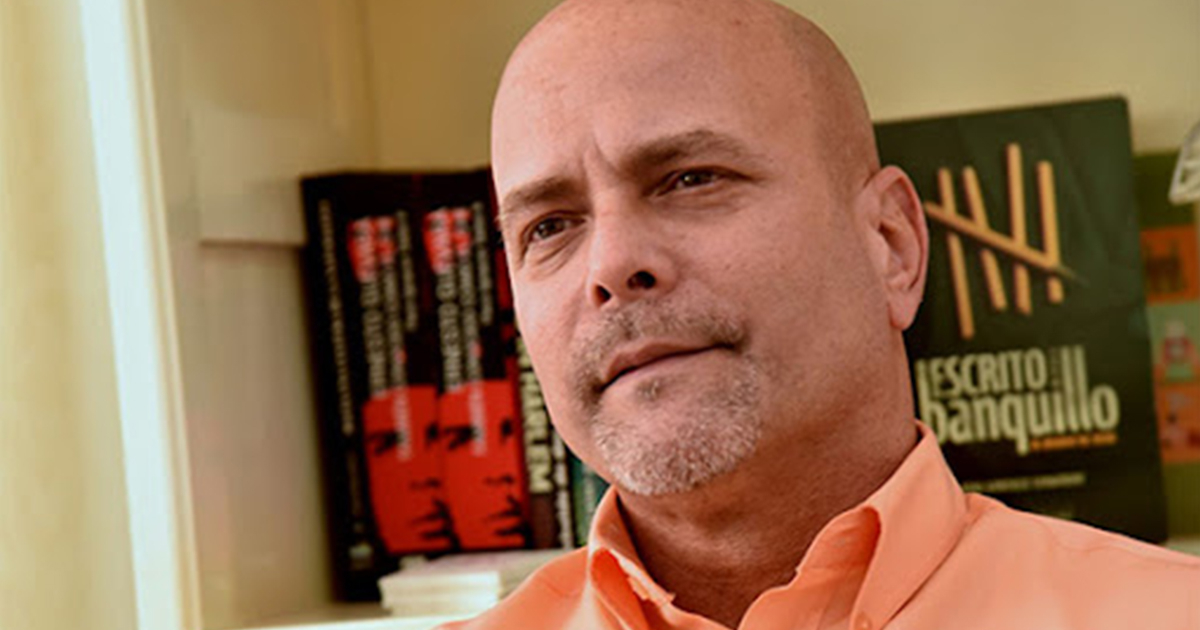Gerardo Hernández, a former Cuban spy and current national coordinator of the Committees for the Defense of the Revolution (CDR), recently shared tales from his time in U.S. prisons, where he served 16 years following his conviction as part of the so-called Wasp Network. During a broadcast of the government-backed program Mesa Redonda on December 17, which was fully transcribed by Cubadebate, Hernández recounted the experiences of various Cuban inmates he met while incarcerated, asserting that most did not emigrate due to political motives.
He explained that among the Cubans he encountered were "rafters," "Mariel boatlift participants," and others who arrived in the United States lured by what he called the "siren songs," seeking economic prosperity but ultimately facing adverse situations. "There were instances where they were offered 'help,' but that help turned out to be selling drugs or engaging in illegal activities. They ended up in prison, and some even lost touch with their families," he remarked.
Life Among Cuban Inmates and Guards' Reactions
Hernández emphasized that despite ideological differences with some Cubans who had fled the socialist system, he never had conflicts with them. According to Hernández, U.S. guards were surprised by how he, a "Cuban revolutionary," lived peacefully alongside those who supposedly had escaped the regime. "In 16 years of imprisonment, none of us had a single issue with any Cuban or any other inmate. In the end, we ended up educating them," he stated.
To the Hero of the Republic of Cuba, this demonstrated that the reasons behind the migration of those Cubans were not political but economic.
Insights on the Cuban Adjustment Act
Hernández also compared the conditions faced by Cubans in their migration process to those of other nationalities, particularly Mexicans. He noted how Cubans, protected by the Cuban Adjustment Act, could remain in the U.S. without evading authorities, unlike migrants from other countries who had to avoid capture. "How different it would be if they told Mexicans that anyone who arrives and says 'I'm seeking freedom' and in a year and a day is given documents," he pondered.
The narratives shared by Hernández provide a glimpse into the complexities of Cuban migration, influenced both by politics and harsh economic conditions, while reinforcing his stance on the impact of external factors on the migration choices of the island's citizens.
Understanding Cuban Migration and the U.S. Legal Context
What is the Cuban Adjustment Act?
The Cuban Adjustment Act is a U.S. law that allows Cuban nationals who reach U.S. soil to apply for permanent residency after one year and one day, providing a unique legal pathway compared to migrants from other countries.
Why do some Cubans choose to emigrate to the United States?
Many Cubans emigrate to the United States seeking better economic opportunities, although some also leave due to political reasons. The allure of prosperity and the promise of freedom often motivate these journeys.
How did Gerardo Hernández view his interactions with other Cuban inmates?
Gerardo Hernández reported having peaceful interactions with other Cuban inmates despite their differing ideological views. He noted that they often ended up educating each other during their time together.
